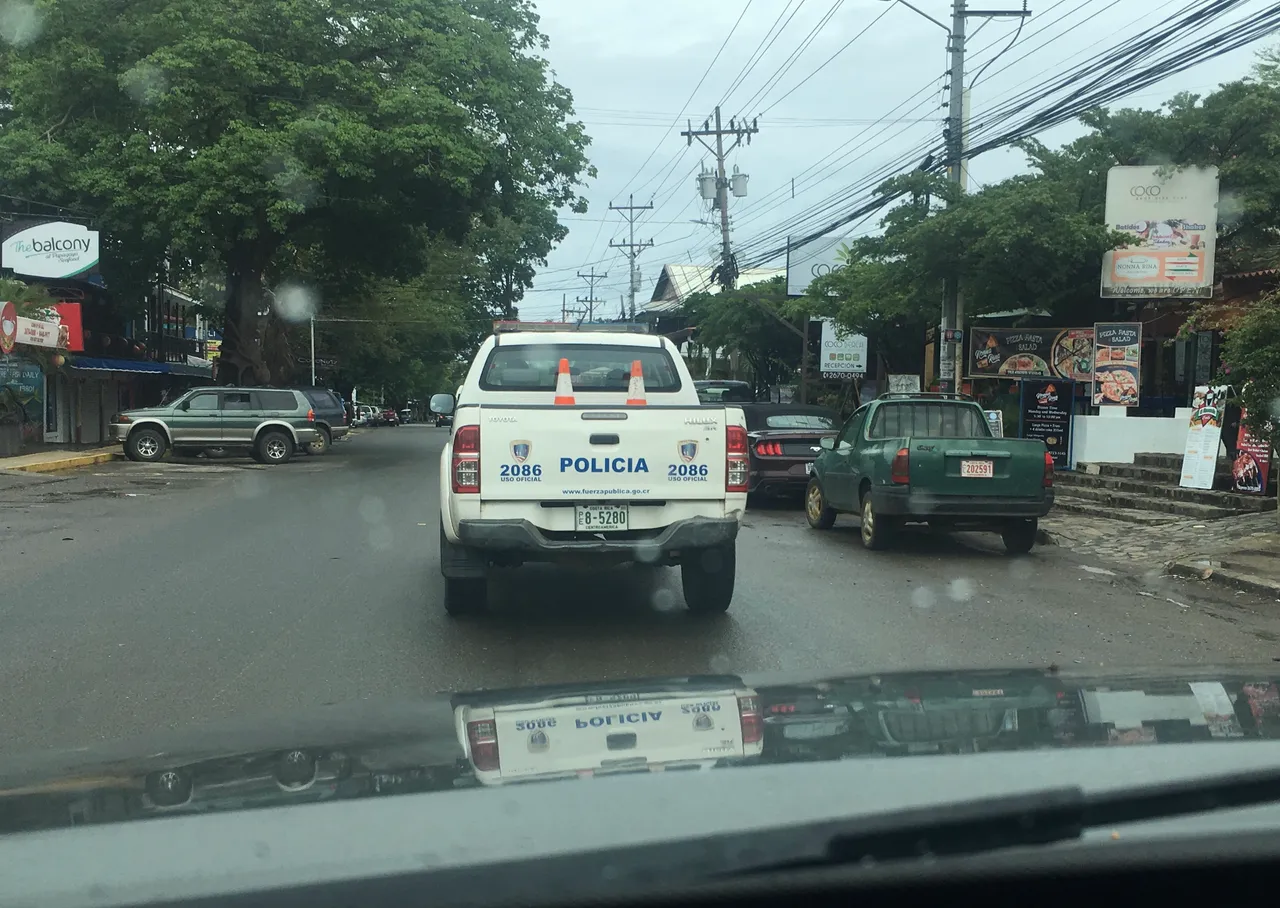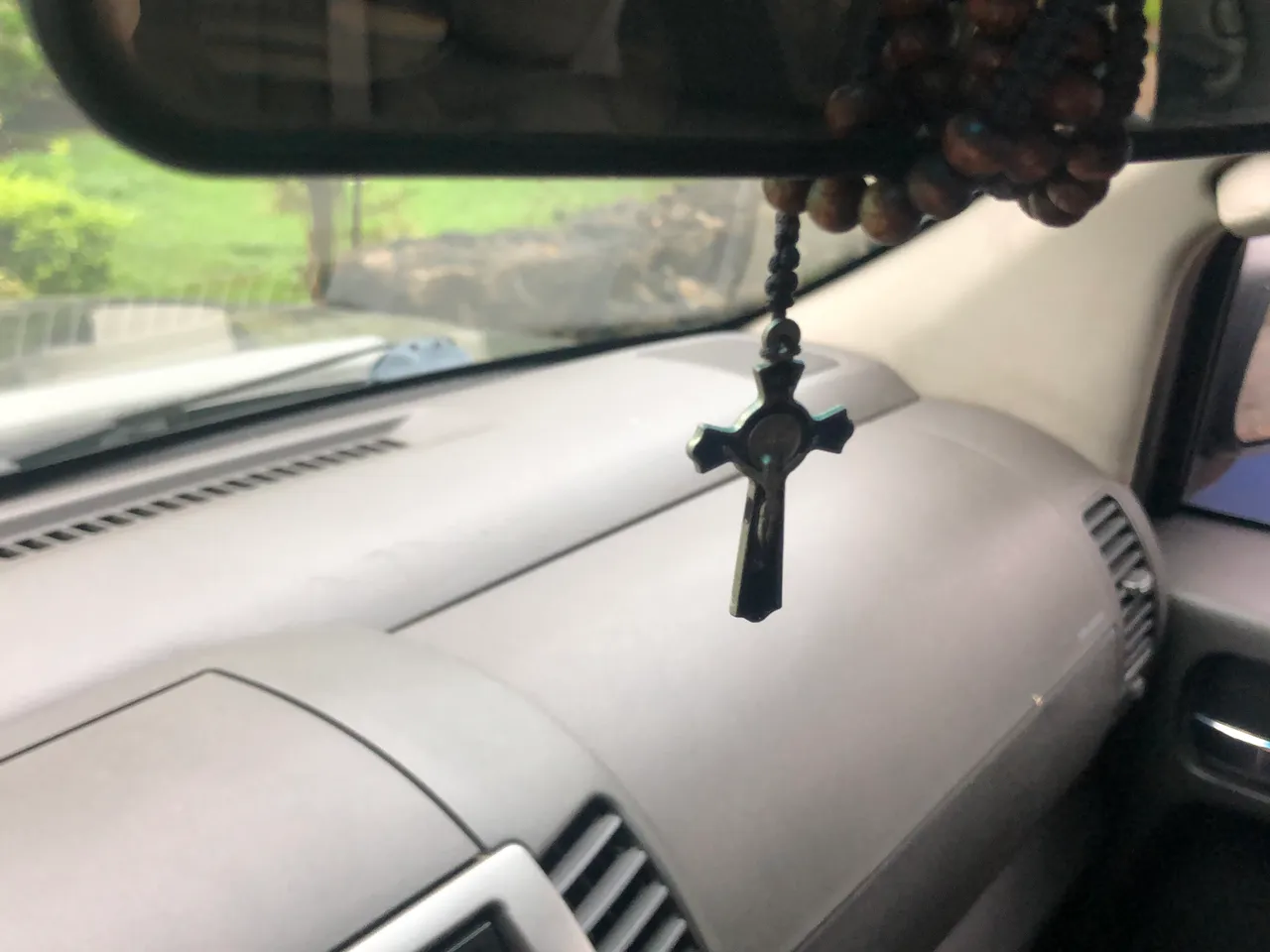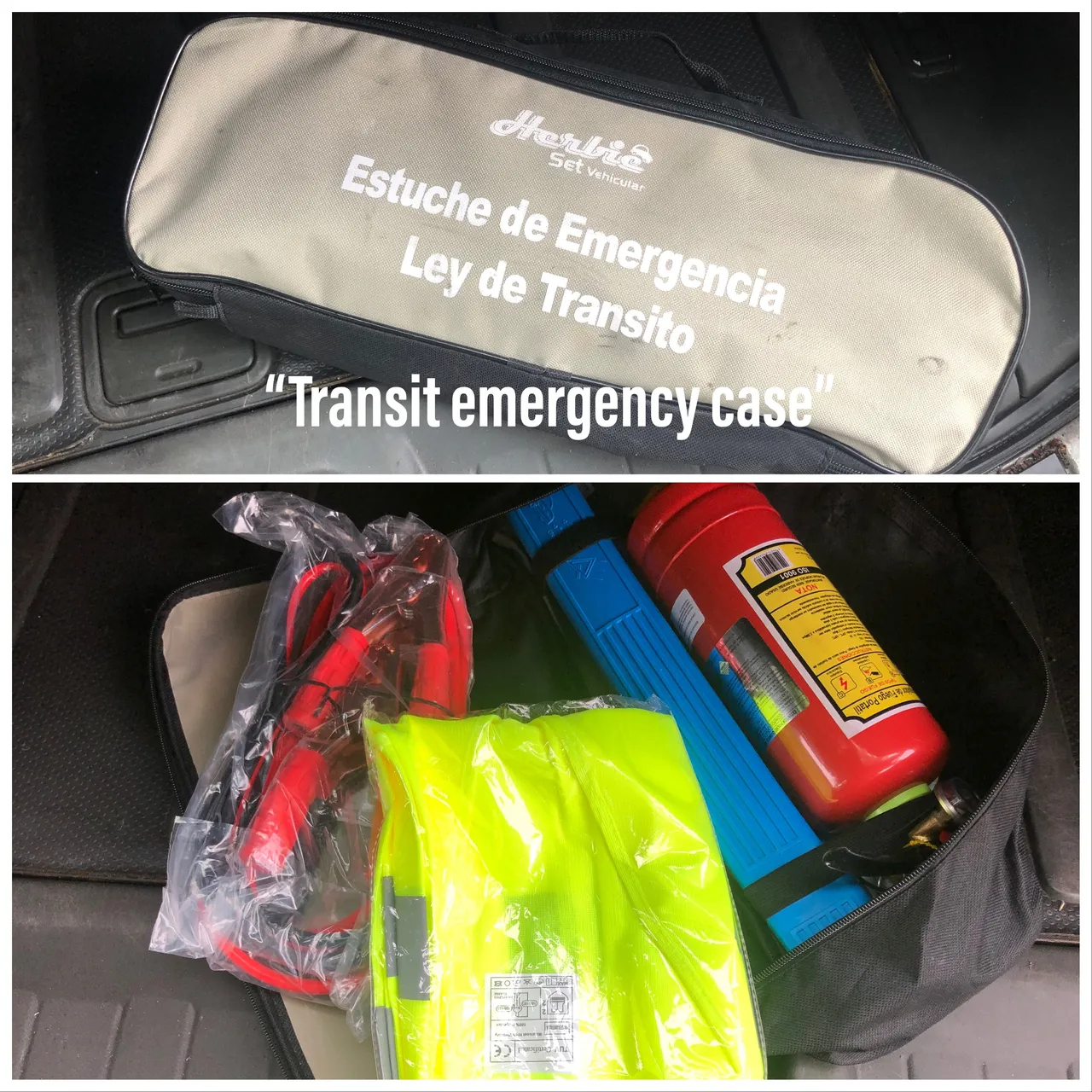I considered opening this article with “this only pertains to white people” but just because I’m in Costa Rica doesn’t mean my actions and remarks have to mirror every.single.local Costa Rican I’ve crossed paths with—racially motivated. So, I’ll sugar coat this opening paragraph and say “English speaking” instead—what I’m about to say only pertains to English speaking people. Engulfing ourselves in the culture here for six months has opened our eyes to the sad and inexplicable divide between locals and expats.
You’re a mark in Costa Rica—period. Locals don’t see you as a human being here, you’re seen as an open target to be taken from and they’ll take anything they can from you without hesitation. The difference between visiting Costa Rica and living in Costa Rica is a smile, when you’re just visiting, they smile when they’re stealing from you. The only difference between a local civilian and local authorities is an assault rifle.

See the cones in the back of that police truck? Those are used to set up temporary road blocks all throughout Costa Rica and, if you’re non-English speaking, you have nothing to worry about. This is for everyone else—the other 250 million marks who visit this country each year.
I was warned by every.single.English speaking person I’ve encountered in this country about corrupt law enforcement. Many of them were kind enough to explain in detail how to avoid being harassed, they each had their own recommendations. I was told if I get pulled over while driving here I should have my wallet exposed and ask “is there a way around this?” That’s one, I was told several. “Can we settle this right now” is another one. Each of these examples will bait the authorities into opening negotiations with you—don’t do that. If you plan on driving a vehicle in Cost Rica, follow these five steps:
One—first things first, learn how to say “Dios te bendiga.” Muy importante! Get a translation app, google how to properly say it in Spanish, whatever it takes, just know how to say “God bless you” in Spanish—Dios te bendiga. Say those words before “hello,” “good evening,” anything. Say Dios te bendiga before you say anything else!
Two—wear a crucifix around the rear view mirror of your vehicle. Between the cross and Dios te bendiga you’ve immediately made the corrupt law enforcement official aware that you both answer to the same authority:

Three—never drive a vehicle without your passport. Your drivers license doesn’t work in Costa Rica, it’s foreign, it’s illegal to operate a vehicle in Costa Rica without being in possession of your passport. Your passport is linked to your vehicle insurance, without one, you don’t possess the other and you’re in violation of the law—don’t operate a vehicle without your passport.
Four—“implements.” They’re sold as a set, you can get a bag at most super markets, Walmart, and especially from the vendors at either the Panamanian or Nicaraguan border. It’s a small duffle bag containing a fire extinguisher, a reflective vest, battery cables and a reflective roadside triangle—implements:

Five—only when applicable. If you’ve followed the first four steps, you shouldn’t need to use step 5, “I’m at your mercy.” These four simple words will not bait the officer into opening negotiations with you, “I’m at your mercy” simply indicates you’re unaware of the current implications the officer can impose. If you’re following the rules; Dios te bendiga, passport, crucifix and implements, you essentially are at their mercy anyway so you might as well acknowledge it out loud: “I’m at your mercy.” Your won’t bait the officer into bribing you with those words and, don’t worry, the officer is going to speak perfectly clear English. Extortion is big business for these guys, it would be foolish of them to place anyone other than an English speaking officer at your driver side window.
Remember who you are, remember your language and don’t forget where you’re at because at the end of the day, without English speaking people, Costa Rica has zero revenue. They call Costa Rica “lawless” and, for the most part, I agree with that term. On foot and in public, you’re on your own. Don’t initiate conversation and avoid eye contact is my best advice for traveling on foot, you’re already an open target, avoid announcing it. In a vehicle, however, follow these steps and you’ll be alright:
- Dios te bendiga!
- Passport.
- Crucifix in the mirror.
- Implements.
- “I’m at your mercy.”




